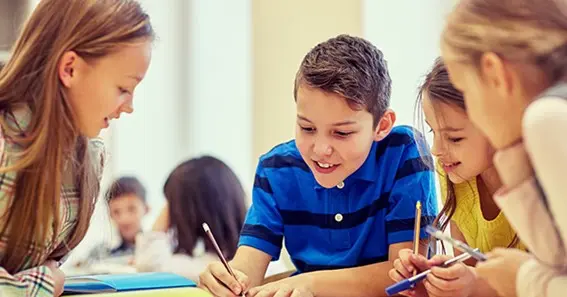School performance is very vital in every student’s life. As it offers various advantages, here are a few tips for teachers on how they can enhance each student’s academic performance via direct and intimate private conversations.
- Be energetic.
Before I go into the step-by-step process of what a teacher must do to develop an effective communication strategy with kids, I want to underline the importance of starting with a positive mindset. I remember how my teacher who used to teach on sell courses online apps used to give all students a great positivity boost before starting the class. When supervising a classroom of 30 or 40 students, you can be a disciplinarian, but you should not be a control freak in one-on-one discussions. It’s critical to emphasise the positive.
- Be Specific With Your Compliments
Before being critical, I said that mentioning students three things they did correctly in their work is vital, but the appreciation should be as precise as possible as students can detect phoney praise. You could commend the student’s inventiveness, dialogue, and characters if you’re grading a fictional writing project. THEN you may start looking at the flaws. Many people have informed me that they despise writing since their faults in spelling and grammar were emphasised by their teachers. Focusing on the bad can deter pupils from improving a crucial ability.
Also Read : How To Prepare For Your New Puppy
click here – How To Prepare For Your New Puppy
- Make a well-organized plan
Also Read : Lending Cryptos – What Should You Keep In Mind?
Before the school year starts, make a strategy for private one-on-one talks with your students. This entails planning how much time you’ll spend with students. Once a month, I recommend meeting with each student for 10 minutes. The logistics of the meeting may be dictated by your teaching environment. Secret meetings during class while the rest of the class is working on an assignment are an option if you wish to be considerate of students’ time.
- Share your plans with the students.
Inform students of your plans to meet with them one-on-one on the first day of class. Remember that many children are trained to see a teacher only when they have done something wrong. Make a plan on a separate sheet of paper from the course syllabus and the regulations in your classroom (which students should help draft). Make it clear in your strategy that your goal is to help each kid develop their academic skills on an individual basis. Critical thinking, questioning abilities, writing, and speaking are examples of talents that should be developed.
- Inform your parents of your plans.
Notifying administrators of your plans is almost certainly required, but notifying your pupils’ parents is equally critical. Encourage pupils to exhibit all of the written materials you gave them on the first day of class to their parents. If you have one, put your ideas on your class website and/or Facebook page, and/or figure out a way to communicate with parents. It is critical to keep parents updated about their children’s progress. Make it clear that you are meeting with each and every student.
- Maintain as much privacy as possible
When you communicate with parents, you may be able to avoid having one-on-one meetings with pupils in class where their classmates can hear what you’re saying. Effective meetings necessitate privacy. If you can’t meet with pupils individually in your classroom or an adjacent room while also monitoring the other students, ask parents if after-school sessions are permitted. It is disrespectful to have after-school gatherings without the approval of parents and pupils. It’s also possible to hold meetings in your office during study halls.
click here – Lending Cryptos – What Should You Keep In Mind?
- Give each student the same amount of time.
In official one-on-one meetings, don’t spend more time with some students than others — and remind kids that this is their choice. If you spend so much time with some of your students, they may infer that you have favourites. You can still help students who don’t want to meet one-on-one, but make it obvious that you urge all of your students to do so.
- Advicewise, don’t treat all students the same.
Others, however, do not respond well to constructive criticism. Throughout the school year, you’ll learn which students require kid gloves treatment. Getting input from the parents of these youngsters is a great method to practise giving them advice and comments. Just line developers of the sell courses online create personalized portals for every student to monitor their feedback, growth etc. Traditional teachers can also use such methods also,it should be noted that as you speak with the students, keep an eye on their expressions to see when you should compliment them to boost their spirits.
To Know Some Great Stuff Do Visit BioCaptions
To Know Some Great Stuff Do Visit BiosWikis
To Know Some Great Stuff Do Visit Caresclub
